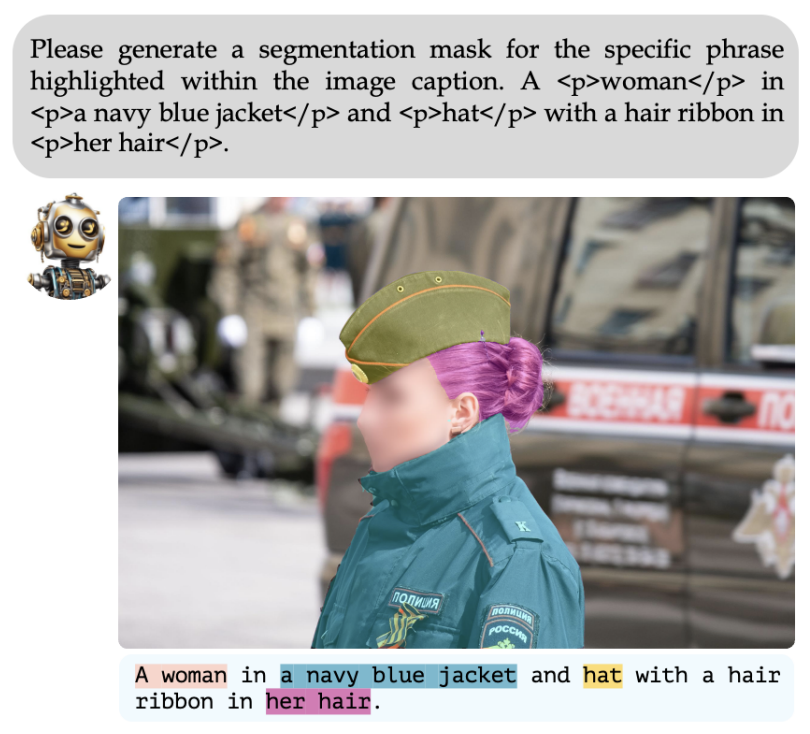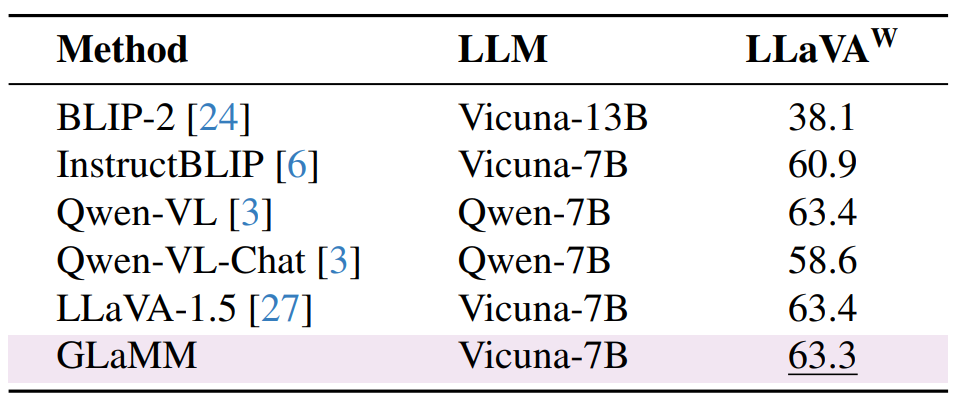and the distribution of digital products.
UAE Researchers Reveal the Secrets Behind an AI That Truly Understands Images
:::info Authors:
(1) Hanoona Rasheed, Mohamed bin Zayed University of AI and equally contributing first authors;
(2) Muhammad Maaz, Mohamed bin Zayed University of AI and equally contributing first authors;
(3) Sahal Shaji, Mohamed bin Zayed University of AI;
(4) Abdelrahman Shaker, Mohamed bin Zayed University of AI;
(5) Salman Khan, Mohamed bin Zayed University of AI and Australian National University;
(6) Hisham Cholakkal, Mohamed bin Zayed University of AI;
(7) Rao M. Anwer, Mohamed bin Zayed University of AI and Aalto University;
(8) Eric Xing, Mohamed bin Zayed University of AI and Carnegie Mellon University;
(9) Ming-Hsuan Yang, University of California - Merced and Google Research;
(10) Fahad S. Khan, Mohamed bin Zayed University of AI and Linköping University.
:::
:::tip Editor's Note: This is Part 8 of 10 of a study detailing the development of an AI model that is designed to describe images to users. Read the rest below.
:::
Table of Links- Abstract and 1 Introduction
- 2. Related Work
- 3. Method
- 4. Data Annotation Pipeline
- 5. Experiments
- 6. Conclusion and References
\ Supplementary Material (Part 1)
- A. Additional Implementation Details
- B. Additional Downstream Tasks
- C. Additional Qualitative Results
\ Supplementary Material (Part 2)
B. Additional Downstream Tasks B.1. Phrase GroundingIn order to adapt the GLaMM model for phrase grounding, we repurpose the GCG dataset to suit this particular task. Specifically, the answers in the GCG dataset are now used as questions, and the parts of the captions containing groundings are regarded as phrases. The model is subsequently trained to locate pixel-level groundings for these phrases, which are enclosed within
and
tokens. The results of this adaptation are shown in the following figure.\

We evaluate our model on the LLaVA-Bench [28, 29] that uses GPT-4 for evaluation of models. This benchmark tests the model on three different types of tasks: conversation question-answering, detailed descriptions, and complex reasoning tasks. The evaluation provides insights into the model’s conversational and reasoning capabilities.
\ The results in Tab. 8 present a comparison of GLaMM with previous open-source models. We note that GLaMM performance is on par with the recently released LLaVA1.5 which leverages additional data for vision-to-language alignment. Qualitative results are shown in Fig. 11 and Fig. 13.
\

\
:::info This paper is available on arxiv under CC BY 4.0 DEED license.
:::
\
- Home
- About Us
- Write For Us / Submit Content
- Advertising And Affiliates
- Feeds And Syndication
- Contact Us
- Login
- Privacy
All Rights Reserved. Copyright , Central Coast Communications, Inc.